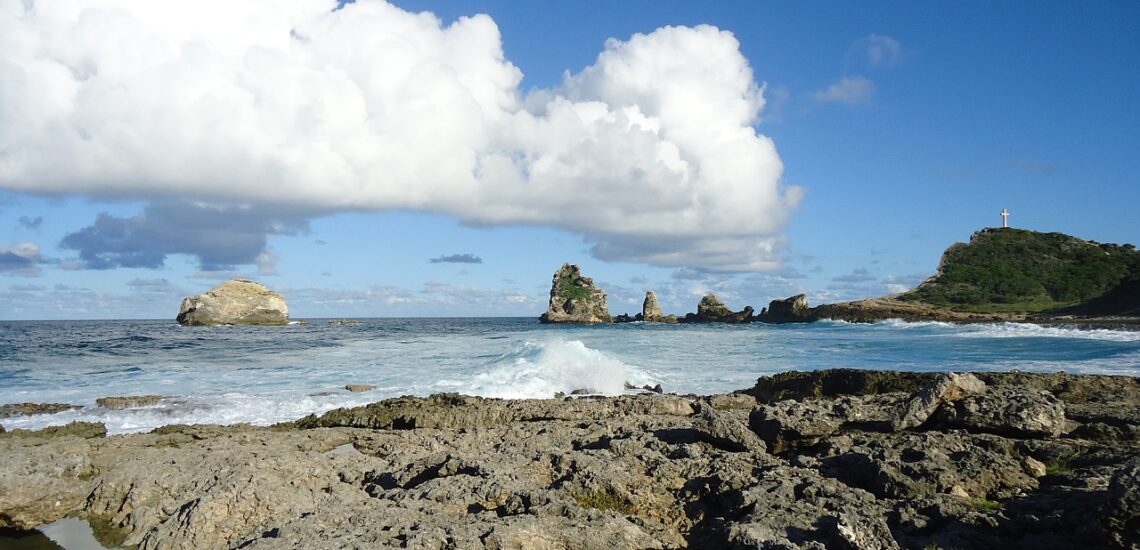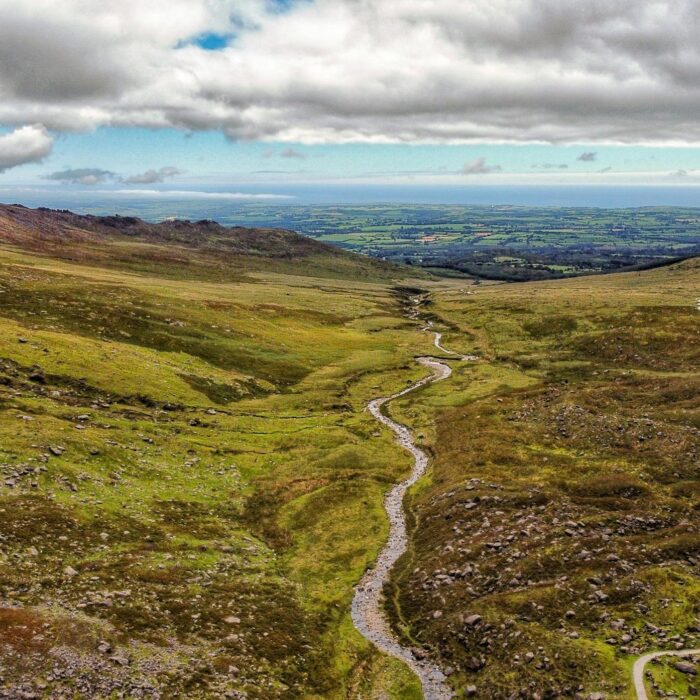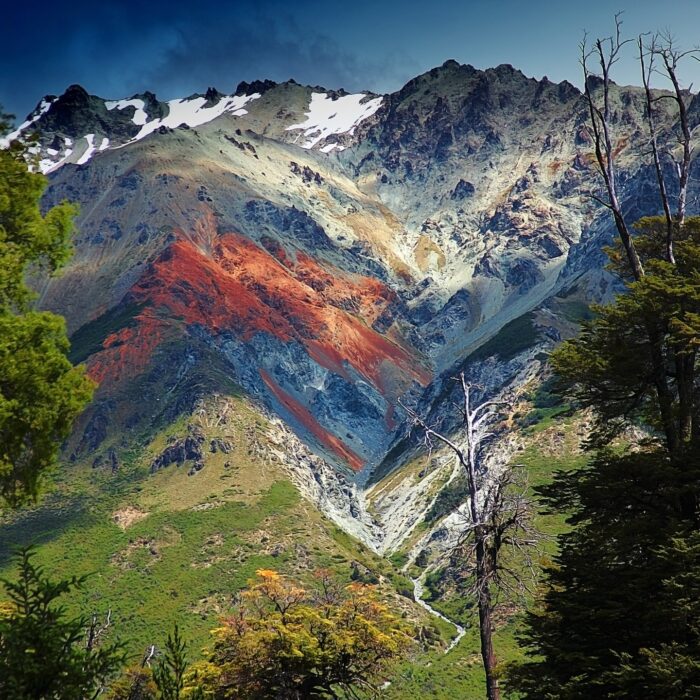Quick facts about Guadeloupe:
- Population: Approximately 395,000 people.
- Capital: Basse-Terre.
- Official Language: French.
- Currency: Euro (EUR).
- Government: Overseas department of France.
- Major Religion: Christianity.
- Geography: Guadeloupe is an archipelago located in the eastern Caribbean Sea. It consists of two main islands, Basse-Terre and Grande-Terre, separated by a narrow sea channel, as well as several smaller islands. The terrain varies from volcanic peaks to lush rainforests and beautiful beaches.
Fact 1: Guadeloupe is volcanic in origin and there are still active volcanoes
Guadeloupe, an overseas region of France located in the Caribbean, is characterized by its volcanic landscape, which includes rugged mountains, lush rainforests, and volcanic peaks. Basse-Terre, one of the two main islands that make up Guadeloupe, is home to La Soufrière, an active stratovolcano that last erupted in 1976. While La Soufrière is not located on the island of Guadeloupe itself, its volcanic activity is closely monitored by local authorities, and precautions are taken to ensure the safety of residents and visitors in the region.

Fact 2: Guadeloupe isn’t just an island, it’s an archipelago
Guadeloupe is composed of several islands, with the two main islands being Basse-Terre and Grande-Terre, which are connected by a narrow channel known as the Rivière Salée. In addition to Basse-Terre and Grande-Terre, the Guadeloupe archipelago includes several smaller islands, such as Marie-Galante, Les Saintes (Îles des Saintes), and La Désirade. Each of these islands offers its own unique attractions, from pristine beaches and lush rainforests to historic sites and cultural experiences.
Fact 3: Guadeloupe produces its own distinctive type of rum, known as Rhum Agricole
Rhum Agricole is a unique style of rum made from fresh sugarcane juice rather than molasses, which is used in traditional rum production. Guadeloupe, particularly the islands of Grande-Terre and Marie-Galante, is renowned for producing high-quality Rhum Agricole, which is characterized by its aromatic complexity, smooth flavor profile, and floral notes. The production of Rhum Agricole in Guadeloupe is governed by strict regulations to ensure authenticity and quality, including guidelines on cultivation methods, fermentation, distillation, and aging processes. Visitors to Guadeloupe can explore local distilleries, known as “rhumeries,” to learn about the production process and sample different varieties of this beloved Caribbean spirit.
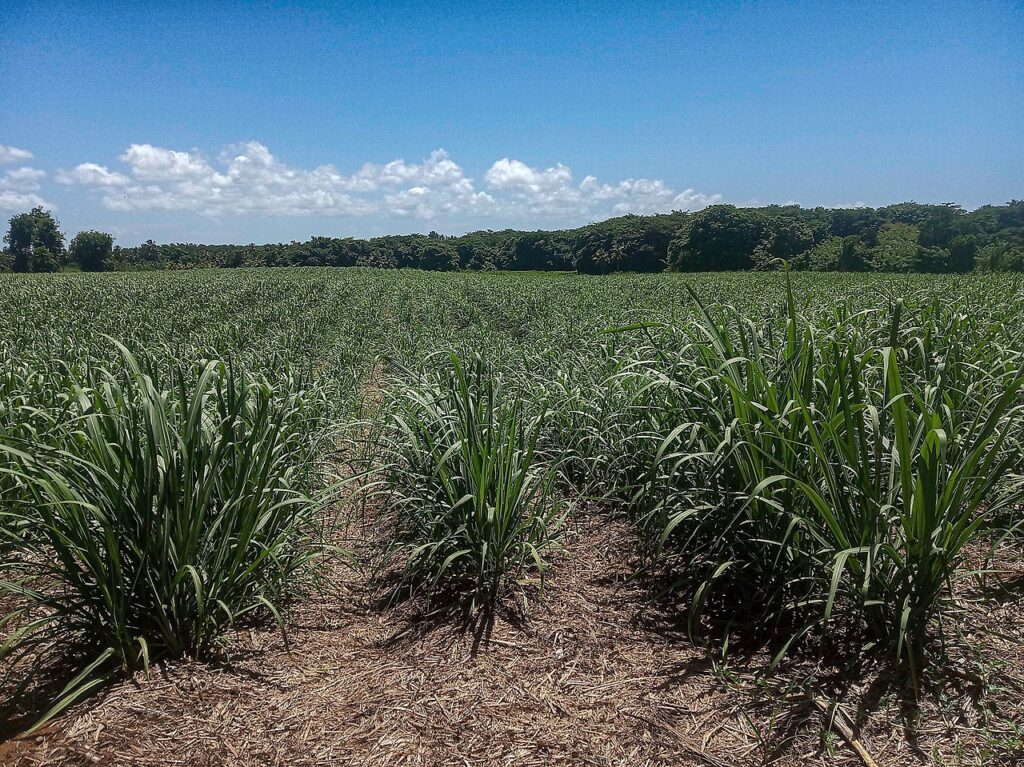
Fact 4: Guadeloupe is part of the European Union, one of the furthest away
Guadeloupe, along with the other overseas departments of France, is fully integrated into the European Union as an outermost region. This means that it is subject to EU laws and regulations, participates in EU programs and initiatives, and benefits from various forms of EU support and funding. Despite its location in the Caribbean, thousands of kilometers away from mainland Europe, Guadeloupe shares the same rights and privileges as other EU member states. This integration has economic, political, and cultural implications for Guadeloupe, contributing to its status as a unique and diverse region with ties to both Europe and the Caribbean.
Fact 5: Guadeloupe has a national park UNESCO site
The Guadeloupe National Park, established in 1989, encompasses a significant portion of the island of Basse-Terre and protects diverse ecosystems, including rainforests, wetlands, and montane forests. The park is renowned for its rich biodiversity, including rare and endemic plant and animal species. Within the park, visitors can explore hiking trails, visit waterfalls, and discover volcanic landscapes. The Guadeloupe National Park was designated as a UNESCO Biosphere Reserve in 1992, recognizing its importance for conservation, research, and sustainable development.
Note: If you are planning a visit, check if you need an International Driver’s License in Guadeloupe to rent and drive a car.
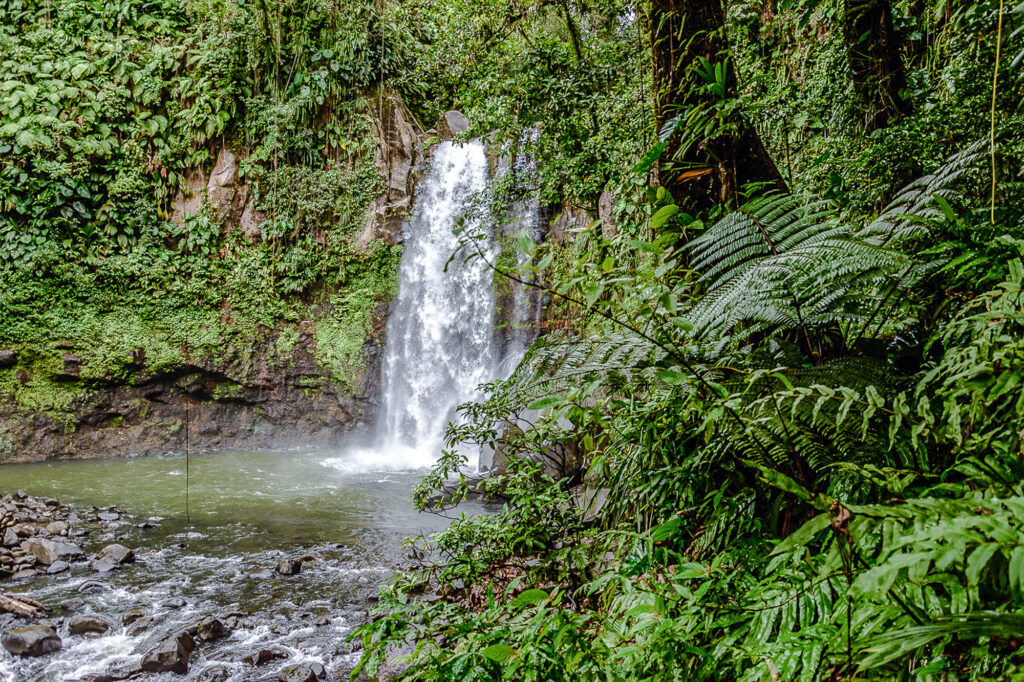
Fact 6: Unlike other Caribbean countries, Guadeloupe’s animal life has suffered greatly in the past
Guadeloupe has experienced habitat degradation and loss, primarily due to urbanization, agriculture, and deforestation. This has resulted in the decline of certain animal species and loss of biodiversity. Additionally, the introduction of invasive species, such as rats, mongoose, and non-native predators, has further threatened native wildlife populations. Overhunting and overfishing have also contributed to declines in some species, particularly those that are economically valuable or culturally significant. Pollution, including marine pollution and habitat degradation, poses additional challenges to marine and terrestrial ecosystems in Guadeloupe. Efforts to address these threats and conserve biodiversity in Guadeloupe include habitat restoration, protected area management, invasive species control, and public education and outreach.
Fact 7: The underwater world is still rich for good diving
Guadeloupe’s coastal waters are teeming with diverse marine life, vibrant coral reefs, and fascinating underwater landscapes, making it a sought-after destination for diving enthusiasts. The surrounding Caribbean Sea provides ideal conditions for diving, with clear waters, healthy coral reefs, and an abundance of marine species. Divers can explore a variety of dive sites, including coral gardens, underwater caves, and shipwrecks, each offering unique experiences and opportunities to encounter colorful reef fish, sea turtles, rays, and other marine creatures. Popular dive spots in Guadeloupe include the Jacques Cousteau Underwater Reserve, located off the coast of Basse-Terre, and the Pigeon Islands (Îles de la Petite-Terre), known for their pristine reefs and marine biodiversity.

Fact 8: Guadeloupe has been home to many writers and poets
Guadeloupe’s rich cultural heritage and vibrant artistic community have nurtured the talents of numerous writers and poets throughout history. Writers from Guadeloupe often draw inspiration from the island’s landscapes, history, and cultural traditions, infusing their works with themes of identity, colonization, and resistance. Prominent Guadeloupean writers and poets include Maryse Condé, a renowned novelist and essayist whose works explore themes of Caribbean identity and postcolonialism, and Aimé Césaire, a poet, playwright, and politician who played a key role in the Negritude movement. Other notable figures include Simone Schwarz-Bart, Ernest Pépin, and Gisèle Pineau, among others.
Fact 9: Guadeloupe’s location in the Caribbean makes it susceptible to hurricane damage
Situated in the hurricane-prone region of the Caribbean, Guadeloupe faces the risk of being affected by tropical storms and hurricanes, particularly during the Atlantic hurricane season, which typically runs from June to November each year. Hurricanes can bring strong winds, heavy rainfall, storm surges, and flooding, causing significant damage to infrastructure, homes, and natural ecosystems. Over the years, Guadeloupe has experienced the impacts of various hurricanes, with some storms causing widespread destruction and disruption to daily life. In response, the local government and communities take measures to prepare for and mitigate the impacts of hurricanes, including implementing building codes, improving disaster preparedness and response plans, and raising awareness about storm safety measures.
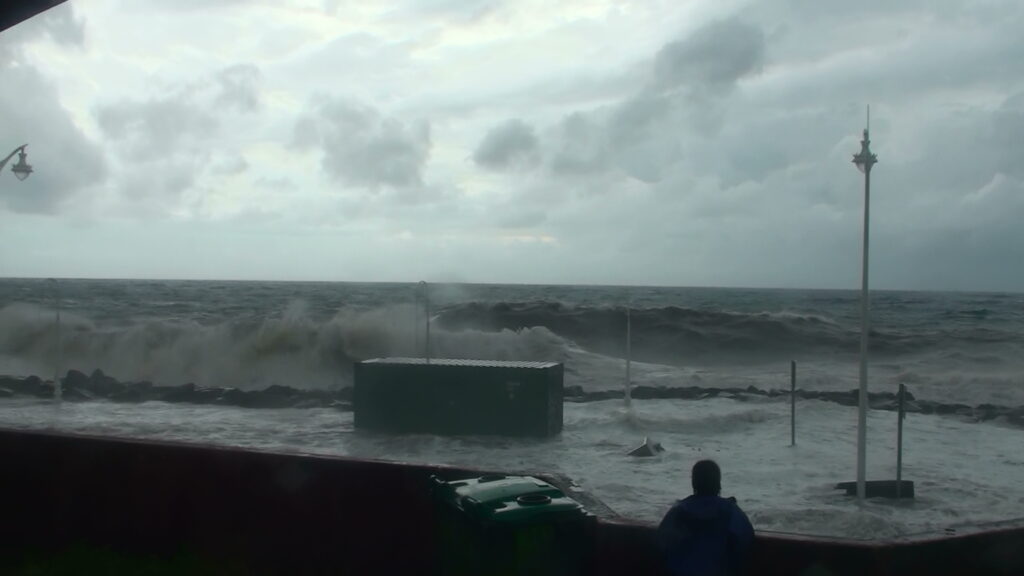
Fact 10: Despite being part of the EU, Guadeloupe is not in the Schengen area
The Schengen Area is a zone comprising 26 European countries that have abolished passport and other types of border control at their mutual borders. While Guadeloupe is an integral part of France and, by extension, the European Union, it is located outside of mainland Europe and is not included in the Schengen Area. Therefore, travelers entering Guadeloupe from other Schengen countries or vice versa may be subject to border controls and immigration checks. It’s important for travelers to Guadeloupe to familiarize themselves with the entry requirements specific to the territory, which may differ from those of mainland France or other Schengen countries.

Published April 07, 2024 • 10m to read

